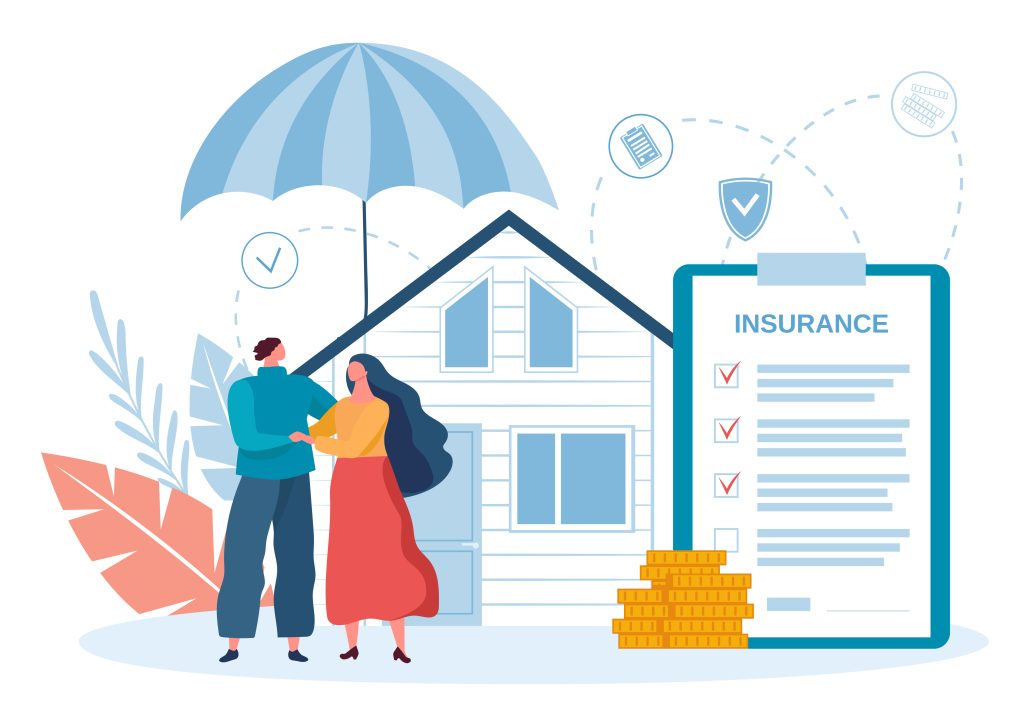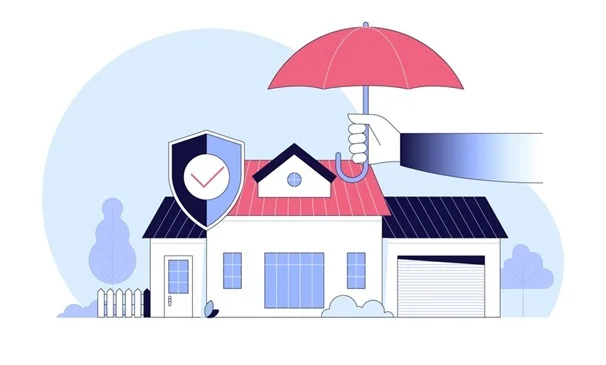Navigating the world of mortgages can be difficult for high-risk borrowers, but securing a home loan and insurance is not impossible. If you have a low credit score or other factors that make you a high-risk borrower, mortgage insurance may be essential to getting approved for a loan. In 2024, understanding the role of mortgage insurance and how it helps secure loans for high-risk borrowers is critical to achieving homeownership.
This comprehensive guide will cover how high-risk borrowers can obtain mortgage insurance, what low credit score borrowers need to know, and an overview of mortgage insurance for high-risk loans in 2024. Let’s dive into the essential information you need to know.
Who Are High-Risk Borrowers?
High-risk borrowers are individuals who present a greater risk to lenders due to factors such as low credit scores, inconsistent income, high debt-to-income ratios (DTI), or past financial troubles such as bankruptcies or foreclosures. Lenders assess these risks to determine the likelihood that a borrower may default on their loan. To mitigate this risk, lenders often require high-risk borrowers to purchase mortgage insurance.
Common Factors That Make You a High-Risk Borrower:
- Credit Score Below 620: Many lenders view a credit score below 620 as a higher risk.
- High Debt-to-Income Ratio (DTI): If more than 43% of your monthly income goes toward debt payments, you may be considered high-risk.
- Inconsistent or Low Income: Irregular income from self-employment or part-time work can make securing a loan harder.
- Previous Bankruptcy or Foreclosure: If you’ve filed for bankruptcy or had a foreclosure, lenders see this as a significant red flag.
For high-risk borrowers, mortgage insurance becomes a critical tool to reduce the risk for lenders and make approval more likely.
How High-Risk Borrowers Can Get Mortgage Insurance: Tips for Approval

1. Improve Your Credit Score
While this may not be an immediate solution, improving your credit score is one of the most effective ways to lower your risk profile and secure mortgage insurance. Lenders and insurance companies prefer borrowers with higher credit scores because they are less likely to default on their loans.
How to Boost Your Credit Score:
- Pay Off Outstanding Debt: Lowering your credit utilization ratio by paying off existing debt can significantly improve your credit score.
- Avoid Late Payments: Timely payments on all debts, including credit cards and loans, show lenders that you’re responsible with your finances.
- Fix Credit Report Errors: Sometimes errors on your credit report can unfairly lower your score. Request your free credit report and dispute any errors.
- Avoid New Debt: Don’t open new credit accounts or take on significant new debt during the mortgage application process.
2. Opt for FHA Loans
Federal Housing Administration (FHA) loans are specifically designed to help borrowers who might not qualify for traditional loans due to low credit scores or other high-risk factors. FHA loans are easier to qualify for, and they come with more lenient requirements, including lower down payments.
However, FHA loans require mortgage insurance regardless of your down payment. This mortgage insurance protects the lender if you default on the loan and is typically more accessible for high-risk borrowers. You can expect to pay both an upfront premium and an annual premium for FHA mortgage insurance.
3. Save for a Larger Down Payment
While it may be difficult for high-risk borrowers to gather a large down payment, it can significantly improve your chances of securing mortgage insurance. A larger down payment reduces the loan-to-value (LTV) ratio, making your loan less risky for lenders.
Benefits of a Larger Down Payment:
- Lower Monthly Payments: A higher down payment reduces the loan principal, leading to smaller monthly payments.
- Improved Approval Odds: Lenders view larger down payments as a sign of financial stability and are more likely to approve your mortgage application.
- Lower Mortgage Insurance Premiums: A lower LTV ratio may reduce your mortgage insurance premiums.
4. Consider Private Mortgage Insurance (PMI)
If you’re applying for a conventional loan, private mortgage insurance (PMI) may be required if your down payment is less than 20%. PMI is similar to FHA mortgage insurance, but it’s provided by private companies rather than the government. The cost of PMI varies based on factors like your credit score and down payment amount, but it is often more flexible than FHA insurance.
How to Qualify for PMI as a High-Risk Borrower:
- Improve Your Credit Score: As mentioned earlier, boosting your credit score can help you qualify for lower PMI rates.
- Negotiate with Lenders: Different lenders may offer varying terms for PMI. Shop around to find the best deal.
Mortgage Insurance for Low Credit Score Borrowers: What You Need to Know

If you have a low credit score, securing mortgage insurance can feel daunting, but it’s not impossible. Mortgage insurance allows lenders to approve your loan despite a higher risk of default. Here’s what low credit score borrowers need to know about mortgage insurance in 2024:
1. FHA Mortgage Insurance for Low Credit Borrowers
FHA loans remain the most accessible option for low credit score borrowers. FHA loans are designed to help those with credit scores as low as 500 (with a 10% down payment) or 580 (with a 3.5% down payment). Since FHA loans require mortgage insurance, the risk for lenders is reduced, making approval more likely for borrowers with less-than-perfect credit.
2. Private Mortgage Insurance (PMI) for Conventional Loans
If you’re opting for a conventional loan but have a credit score below 620, you’ll almost certainly need to pay for PMI. Private mortgage insurance is required for borrowers who can’t make a 20% down payment. While PMI rates are higher for borrowers with low credit scores, securing it may still be possible, especially if you have a strong employment history or a larger down payment.
3. VA Loans as an Option
If you’re a veteran or active-duty service member, you may qualify for a VA loan, which doesn’t require mortgage insurance. VA loans are government-backed and come with additional benefits for low credit score borrowers, such as lower interest rates and more flexible requirements. While VA loans don’t require mortgage insurance, they do charge a one-time VA funding fee that helps cover the risk for lenders.
Understanding Mortgage Insurance for High-Risk Loans
In 2024, mortgage insurance remains a key factor for high-risk borrowers. Whether you’re applying for an FHA loan or seeking private mortgage insurance, understanding the costs, benefits, and requirements is essential for securing a mortgage. High-risk borrowers can still achieve homeownership with the help of mortgage insurance by taking steps to reduce risk factors and prepare for the application process.
Trends for High-Risk Borrowers in 2024:
- Rising Mortgage Insurance Premiums: Due to economic uncertainty and fluctuating housing markets, mortgage insurance premiums may increase in 2024, particularly for high-risk borrowers. It’s essential to compare rates and understand how these costs will impact your monthly payments.
- Stricter Lending Requirements: Some lenders may impose stricter credit score and income requirements in response to the economic climate, making it even more important for high-risk borrowers to focus on improving their financial profiles.
- Increased Use of Technology: Lenders and insurance providers are increasingly relying on advanced technology to assess borrower risk, which could benefit high-risk borrowers who demonstrate financial improvement through non-traditional data points like rental history and utility payments.
Conclusion
For high-risk borrowers, securing mortgage insurance is not only possible but can also be the key to homeownership. By improving your credit score, saving for a larger down payment, and considering alternative loan options like FHA or VA loans, you can increase your chances of getting approved for a mortgage with insurance. As we navigate 2024, understanding mortgage insurance options and how they apply to high-risk borrowers will help you make informed decisions and achieve your homeownership goals.
Check Out:
Mortgage Insurance Tax Deductions
Mortgage Insurance for Veterans (VA Loans)
Lender-Paid Mortgage Insurance (LPMI)
Mortgage Insurance for Self-Employed Borrowers
